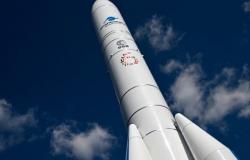The subject of growing protests, due to their financial, social or ecological impact, the Paris 2024 Olympic and Paralympic Games begin in less than sixty days. Does the very model of the event seem compatible with a progressive and emancipatory vision of sport?
This is a legitimate question which, I think, sometimes undermines certain values and certain actions in the model and will continue to arise in the future, when major global sporting events are held. Let us think about the 2030 deadline and the potential organization of the Winter Olympic Games in the French Alps. The Games make it possible to make a certain number of social issues more visible and to discuss them.
The project of the Olympic organizing committee intends to anchor the legacy of the Games over the long term. Do you think it will live up to the ambitions?
We can have some legitimate concerns about the post-Olympics, about the material as well as symbolic heritage, and the very desire to make physical and sporting culture accessible to all. For what ? Because, on the economic level, budget cuts concerning the credits allocated to the Sport mission have already been announced (out of the 10 billion euros of the economy plan announced by the Minister of the Economy and Finances, Bruno Le Maire, mid-February, 50.5 million euros concern the Ministry of Sports – Editor’s note).
However, these credits finance the construction and renovation of sports equipment, support for parasport, the Pass’Sport system (back-to-school sports allowance of 50 euros per child or young adult to finance all or part of their registration in an association, a club or a gym – Editor’s note). A paradox among others?
We can see the glass half full and welcome the progress that the creation of the Olympic aquatic center of Saint-Denis represents, but the reality is that, in the department of Seine-Saint-Denis, almost half of the installations sports cars are dilapidated and more than forty years old.
What about the promotion of physical activity, declared the major national cause of the year?
The idea that the organization of a major sporting event, such as the Olympic Games, could enable more French men and women to take up sport, or to integrate physical and sporting activity into their daily lives, is a a bet that takes little account of the social realities of the moment (increase in precariousness, inflation, increase in inequalities of all kinds, etc.)
The speeches are very incantatory and the injunctions sometimes turn out to be guilt-inducing. It is not enough to do “nudge marketing”, “get moving”, “do thirty minutes of sport a day”, so that everyone can do it.
So what would constitute, today, the axes of a left-wing sport?
To the extent that everyone agrees on the idea of democratization of sport, it is the question of the social project that we must reflect on, around a sport which does not intrinsically have any social or educational virtue. and is not a vector of any values other than those dictated by society.
Despite positive developments, today we seem to forget that sport is in no way egalitarian and democratic. Inequalities in access remain strong regardless of the indicator chosen (gender, territory, etc.). And there would, moreover, be a paradigm shift to be made, from a competitive sport to a tool sport, which can participate in social performance.
A left-wing sport must necessarily be part of the societal, environmental and economic issues of tomorrow. It is a place for intergenerational meetings, open to all, and it must allow, through its educators and volunteers, to learn how to live together.
Young people and sport. Thinking about the society of tomorrow, by Guillaume Dietsch, ed. De Boeck Supérieur, 110 pages, 19.90 euros
The media that billionaires can’t afford
We are not funded by any billionaire. And we are proud of it! But we face ongoing financial challenges. Support us! Your donation will be tax-free: giving €5 will cost you €1.65. The price of a coffee.
I want to know more !






